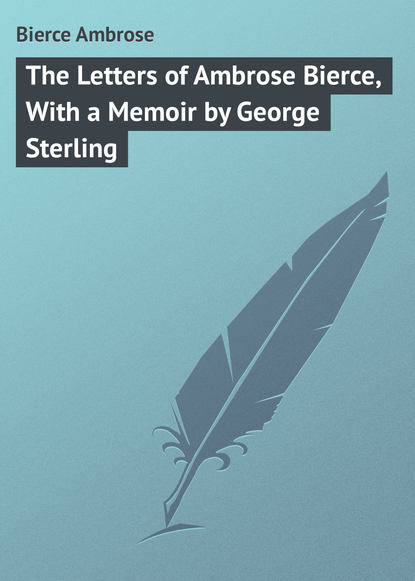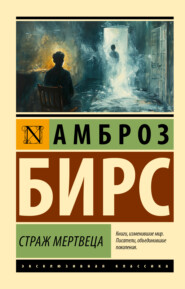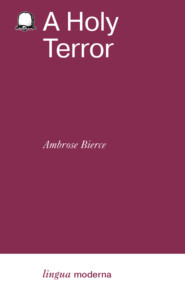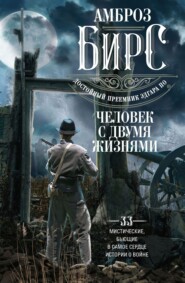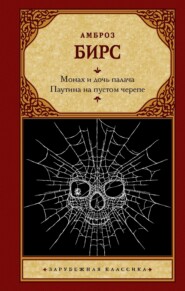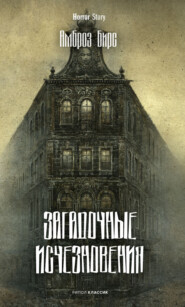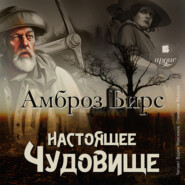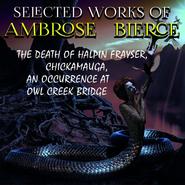По всем вопросам обращайтесь на: info@litportal.ru
(©) 2003-2025.
✖
The Letters of Ambrose Bierce, With a Memoir by George Sterling
Настройки чтения
Размер шрифта
Высота строк
Поля
"Such flowers pale as are
Worn by the goddess of a distant star —
Before whose holy eyes
Beauty and evening meet."
And – but what's the use? I can't quote the entire book.
I'm glad you did see your way to make "Memory" a female.
To Hades with Bonnet's chatter of gems and jewels – among the minor poetic properties they are better (to my taste) than flowers. By the way, I wonder what "lightness" Bonnet found in the "Apothecary" verses. They seem to me very serious.
Rereading and rerereading of the Job confirm my first opinion of it. I find only one "bad break" in it – and that not inconsistent with God's poetry in the real Job: "ropes of adamant." A rope of stone is imperfectly conceivable – is, in truth, mixed metaphor.
I think it was a mistake for you to expound to Ned Hamilton, or anybody, how you wrote the "Forty-third Chapter," or anything. When an author explains his methods of composition he cannot expect to be taken seriously. Nine writers in ten wish to have it thought that they "dash off" things. Nobody believes it, and the judicious would be sorry to believe it. Maybe you do, but I guess you work hard and honestly enough over the sketch "dashed off." If you don't – do.
* * *
With love to Carrie, I will leave you to your sea-gardens and abalones.
Sincerely yours, Ambrose Bierce.
I'm off to Broadway next week for a season of old-gentlemanly revelry.
Washington, D. C.,
May 2,
1911.
Dear George,
In packing (I'm going to New York) I find this "Tidal" typoscript, and fear that I was to have returned it. Pray God it was not my neglect to do so that kept it out of the book. But if not, what did keep it out? Maybe the fact that it requires in the reader an uncommon acquaintance with the Scriptures.
If Robertson publishes any more books for you don't let him use "silver" leaf on the cover. It is not silver, cannot be neatly put on, and will come off. The "Wine" book is incomparably better and more tasteful than either of the others. By the way, I stick to my liking for Scheff's little vignette on the "Wine."
In "Duandon" you —you, Poet of the Heavens! – come perilously near to qualifying yourself for "mention" in a certain essay of mine on the blunders of writers and artists in matters lunar. You must have observed that immediately after the full o' the moon the light of that orb takes on a redness, and when it rises after dark is hardly a "towering glory," nor a "frozen splendor." Its "web" is not "silver." In truth, the gibbous moon, rising, has something of menace in its suggestion. Even twenty-four (or rather twenty-five) hours "after the full" this change in the quality and quantity of its light is very marked. I don't know what causes the sudden alteration, but it has always impressed me.
I feel a little like signing this criticism "Gradgrind," but anyhow it may amuse you.
Do you mind squandering ten cents and a postage stamp on me? I want a copy of Town Talk– the one in which you are a "Varied Type."
I don't know much of some of your poets mentioned in that article, but could wish that you had said a word about Edith Thomas. Thank you for your too generous mention of me – who brought you so much vilification!
Sincerely yours, Ambrose Bierce.
Washington, D. C.,
May 29,
1911.
My dear Ruth,
You are a faithful correspondent; I have your postals from Athens and Syracuse, and now the letter from Rome. The Benares sketch was duly received, and I wrote you about it to the address that you gave – Cairo, I think. As you will doubtless receive my letter in due time I will not now repeat it – further than to say that I liked it. If it had been accompanied by a few photographs (indispensable now to such articles) I should have tried to get it into some magazine. True, Benares, like all other Asiatic and European cities, is pretty familiar to even the "general reader," but the sketch had something of the writer's personality in it – the main factor in all good writing, as in all forms of art.
May I tell you what you already know – that you are deficient in spelling and punctuation? It is worth while to know these things – and all things that you can acquire. Some persons can not acquire orthography, and I don't wonder, but every page of every good book is a lesson in punctuation. One's punctuation is a necessary part of one's style; you cannot attain to precision if you leave that matter to editors and printers.
You ask if "stories" must have action. The name "story" is preferably used of narrative, not reflection nor mental analysis. The "psychological novel" is in great vogue just now, for example – the adventures of the mind, it might be called – but it requires a profounder knowledge of life and character than is possible to a young girl of whatever talent; and the psychological "short story" is even more difficult. Keep to narrative and simple description for a few years, until your wings have grown. These descriptions of foreign places that you write me are good practice. You are not likely to tell me much that I do not know, nor is that necessary; but your way of telling what I do know is sometimes very interesting as a study of you. So write me all you will, and if you would like the letters as a record of your travels you shall have them back; I am preserving them.
I judge from your letter that your father went straight through without bothering about me. Maybe I should not have seen him anyhow, for I was away from Washington for nearly a month.
Please give my love to your mother and sister, whom, of course, you are to bring here. I shall not forgive you if you do not.
Yes, I wish that you lived nearer to me, so that we could go over your work together. I could help you more in a few weeks that way than in years this way. God never does anything just right.
Sincerely yours, Ambrose Bierce.
Washington, D. C.,
July 31,
1911.
Dear George,
Thank you for that Times "review." It is a trifle less malicious than usual – regarding me, that is all. My publisher, Neale, who was here last evening, is about "taking action" against that concern for infringement of his copyright in my little book, "Write It Right." The wretches have been serving it up to their readers for several weeks as the work of a woman named Learned. Repeatedly she uses my very words – whole passages of them. They refused even to confess the misdeeds of their contributrix, and persist in their sin. So they will have to fight.
* * * I have never been hard on women whose hearts go with their admiration, and whose bodies follow their hearts – I don't mean that the latter was the case in this instance. Nor am I very exacting as to the morality of my men friends. I would not myself take another man's woman, any more than I would take his purse. Nor, I trust, would I seduce the daughter or sister of a friend, nor any maid whom it would at all damage – and as to that there is no hard and fast rule.
* * *
A fine fellow, I, to be casting the first stone, or the one-hundredth, at a lovelorn woman, weak or strong! By the way, I should not believe in the love of a strong one, wife, widow or maid.
It looks as if I may get to Sag Harbor for a week or so in the middle of the month. It is really not a question of expense, but Neale has blocked out a lot of work for me. He wants two more volumes – even five more if I'll make 'em. Guess I'll give him two. In a week or so I shall be able to say whether I can go Sagharboring. If so, I think we should have a night in New York first, no? You could motor-boat up and back.
Sincerely yours, Ambrose Bierce.[14 - Addressed to George Sterling at Sag Harbor, Long Island.]
Washington, D. C.,
Monday,
August 7,
1911.
Dear George,
In one of your letters you were good enough to promise me a motorboat trip from New York to Sag Harbor. I can think of few things more delightful than navigating in a motorboat the sea that I used to navigate in an open canoe; it will seem like Progress. So if you are still in that mind please write me what day after Saturday next you can meet me in New York and I'll be there. I should prefer that you come the day before the voyage and dine with me that evening.
I always stay at the Hotel Navarre, 7th avenue and 38th street. If unable to get in there I'll leave my address there. Or, tell me where you will be.
Sincerely yours, Ambrose Bierce.
If the motorboat plan is not practicable let me know and I'll go by train or steamer; it will not greatly matter. A. B.
Washington, D. C.,
Tuesday,
August 8,





